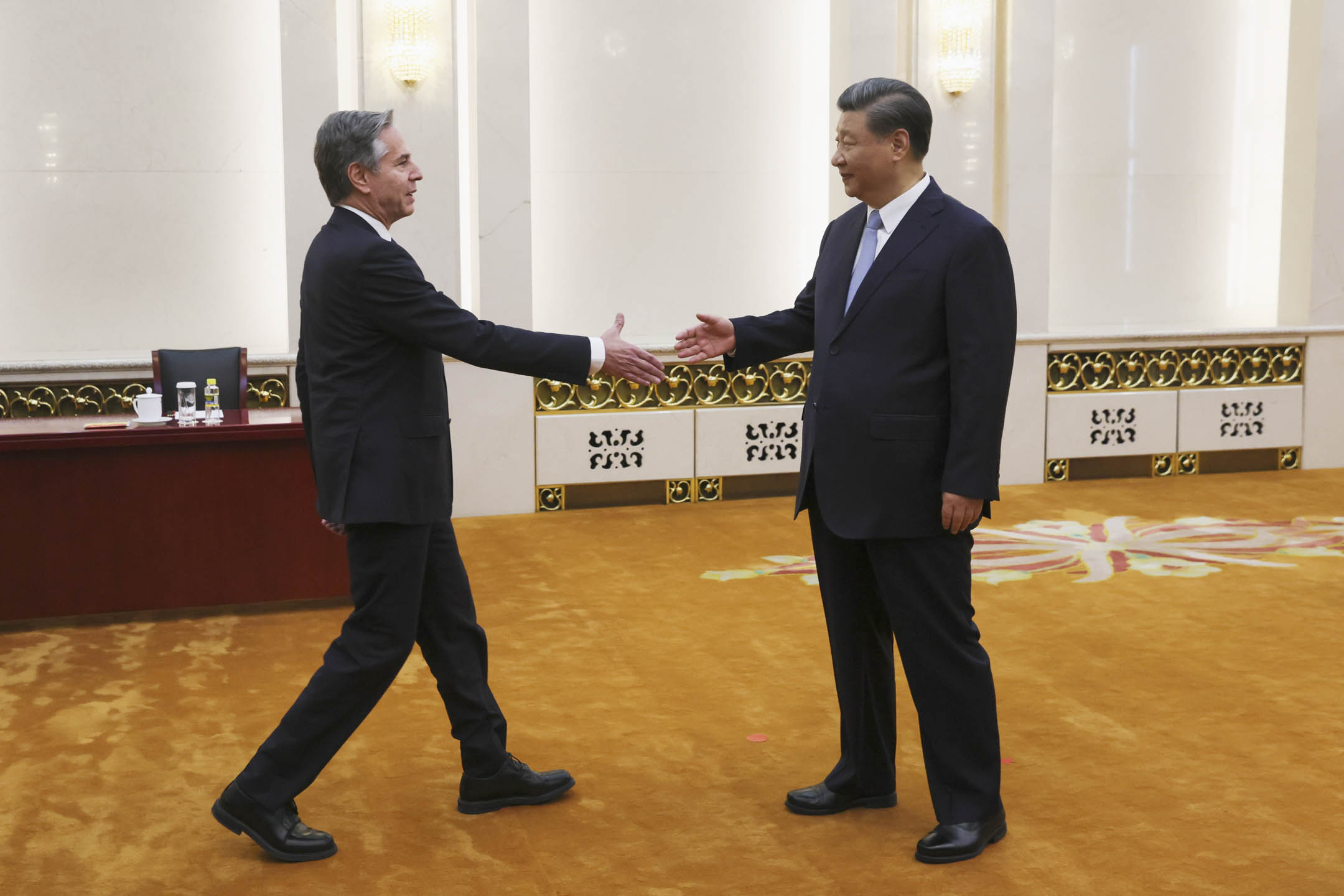Philip Cunningham, Independent Scholar
Sep 21, 2024
As U.S.-China relations face mounting tension and uncertainty, reflecting on the early days of cultural exchange in the 1980s reveals a simpler time of optimism, goodwill, and mutual curiosity. While today's challenges are formidable, the shared experiences of those who helped build these ties offer a reminder that, even in times of difficulty, there remains potential for collaboration and understanding.

David Shambaugh, Gaston Sigur Professor and Director of China Policy Program at George Washington University, Distinguished Visiting Fellow at Hoover Institution of Stanford University
Jun 23, 2023
After more than twelve hours of direct and candid discussions between U.S. Secretary of State Antony Blinken and senior Chinese officials (including President Xi Jinping), the volatile U.S.-China relationship is slightly more stable . But while the visit will catalyze more regularized exchanges and high-level visits in the coming weeks and months, the relationship remains deeply strained over a wide variety of issues and deep differences in views—which are not going to fundamentally change.
Wang Yi, Foreign Minister of the People's Republic of China
Jul 09, 2020
China's US policy remains unchanged. We are still willing to grow China-US relations with goodwill and sincerity.
Cui Tiankai, China’s ambassador to the United States
May 07, 2020
The "always blame China" mentality hurts global response to COVID-19.
Cui Tiankai, China’s ambassador to the United States
Apr 06, 2020
Let’s acknowledge there has been unpleasant talk between our nations about this disease. But this is not the time for finger-pointing.

Oct 30, 2019
1979 was the year not only in which China began its open-up and reform program, but also in which China and the US officially re-established diplomatic relations through the meeting of Jimmy Carter and Deng Xiaoping. Mr Tung explains why the coming-together of the U.S. and China was so significant for the two nations, including the U.S. winning the Cold War, and China beginning to open its market to US businesses. Through his analysis of this period, he shows how collaborative U.S.-China relations are healthy for the international community as a whole.

Oct 30, 2019
In the first part of this series, Mr Tung discusses his experience of living in the U.S. for 9 years and how it inspired his life-long commitment to improving China-U.S. relations. With his deep understanding of both Chinese and American culture and lifestyle, Mr Tung explains what he sees as the root of the current disputes between the U.S. and China, as well as what can be done to resolve existing tensions.

Oct 30, 2019
In part three of this interview, Mr Tung highlights the most notable moments of cooperation in the 40 years of the US-China relationship, from George W. Bush and Hu Jintao's collaboration over rebuilding the world economy after 2008, to Barack Obama and Xi Jinping's cooperation on renewable energy initiatives. He then explores how the two countries can continue on this path of collaboration to build a more sustainable future together.

Oct 30, 2019
In part four of this interview, Mr Tung responds to the notion that China's market is not open to international businesses, and addresses the myth that the U.S. experiences mass job loss due to jobs being relocated to China. James and Mr Tung conclude by discussing the opportunities and benefits that exist for both countries vis-a-vis stronger U.S.-China economic cooperation.

Oct 30, 2019
Mr Tung puts forward that worries in the U.S. that China is leveraging American intellectual property is unwarranted, for China has improved and continues to improve itself, both technologically and in terms of its legal system. In consideration of the rapid advancements China has made since its reform and opening-up in 1979, Mr Tung explains the current state of IPR and why it should no longer obstruct peaceful U.S.-China collaboration.